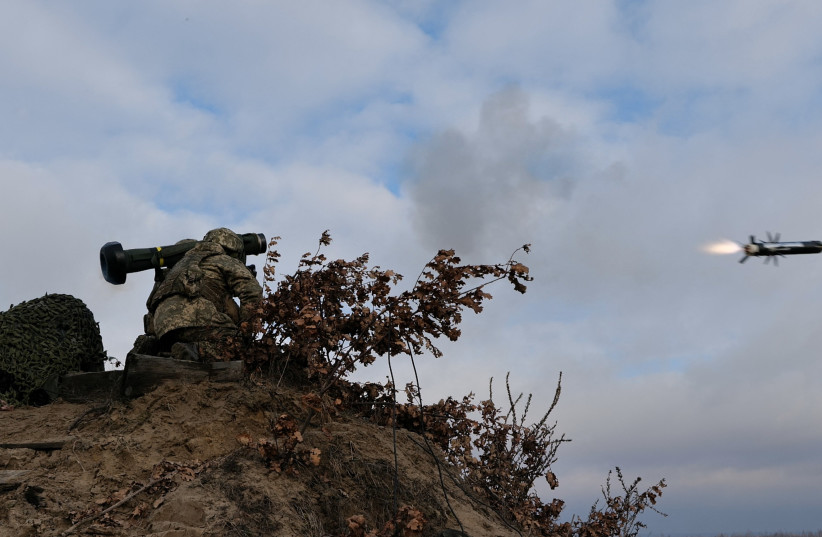Sen. Richard Blumenthal (D, Connecticut) said that the US has sent about a third of its Javelin anti-tank missiles to Ukraine, he wrote on Twitter.
Replenishing those stocks would require 32 months, it was determined in a Senate Foreign Relations Committee hearing in late April, Axios reported. Blumenthal wrote that it would take a year to produce 1,000 of them, under current conditions.
Blumenthal and other members of Congress have called for the Biden administration to invoke the Defense Production Act to ensure the US military retains ample supplies.
According to Axios, committee chairman Sen. Jack Reed (D, Rhode Island), raised similar concerns, saying the US must “have a significant usage rate for the Stingers that we’re moving over there ― Javelins, also ― and we have to not only be able to help the Ukrainians, [but we] also have to maintain our stocks."
Press Secretary Jen Psaki responded to a question regarding the Senate Foreign Relations Committee hearing and concerns about America's Javelin and other anti-tank weapons supplies on Monday, saying the US has “been able to transfer equipment from US stocks, including Javelins, to Ukraine without affecting military readiness."

The government was "looking to replenish US inventories and backfill depleted stocks for ourselves and also our allies and partners," she said.
Pentagon Press Secretary John F. Kirby was also asked about the anti-tank weapons shortage. “Thus far, we have not seen any negative impact on our ability to defend this nation across a range of military capabilities. But that is not something we take lightly,” he said.
“We judge it all as a conglomerate of what's our ability to meet this particular mission set, realizing that a Javelin isn't the only capability you have against armor,” Kirby said.
President Joe Biden visited a Lockheed Martin facility producing Javelin anti-tank missiles in Alabama on Tuesday as he urges Congress to approve $33 billion in further military aid to Ukraine.
While the administration has downplayed concerns about the shortage, Raytheon CEO Greg Hayes said during an April earnings call that increasing anti-tank missile production "is going to take us a little bit of time,” according to Defense News.
“We are actively trying to source some of the material, but unfortunately, DoD [the Department of Defense] hasn’t bought a Stinger in 18 years,” Hayes said. “As far as the Stingers, we should keep in mind we are currently producing Stingers for an international customer, but we have a very limited stock of material for Stinger production.”
"Unless the president invokes the Defense Production Act to prioritize deliveries of components to the manufacturer to give that demand signal ... we will run out of these key arms," Blumenthal concluded.
